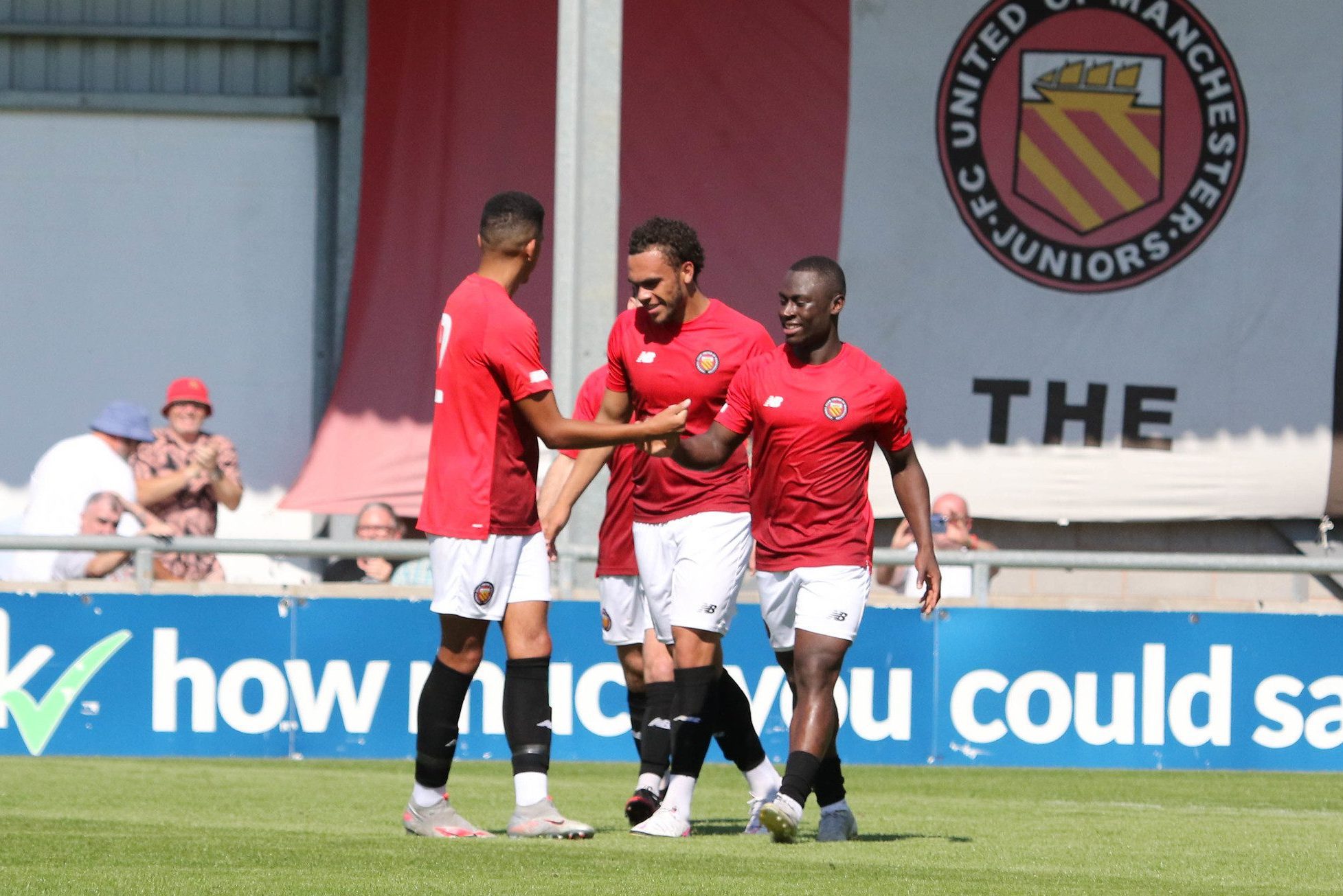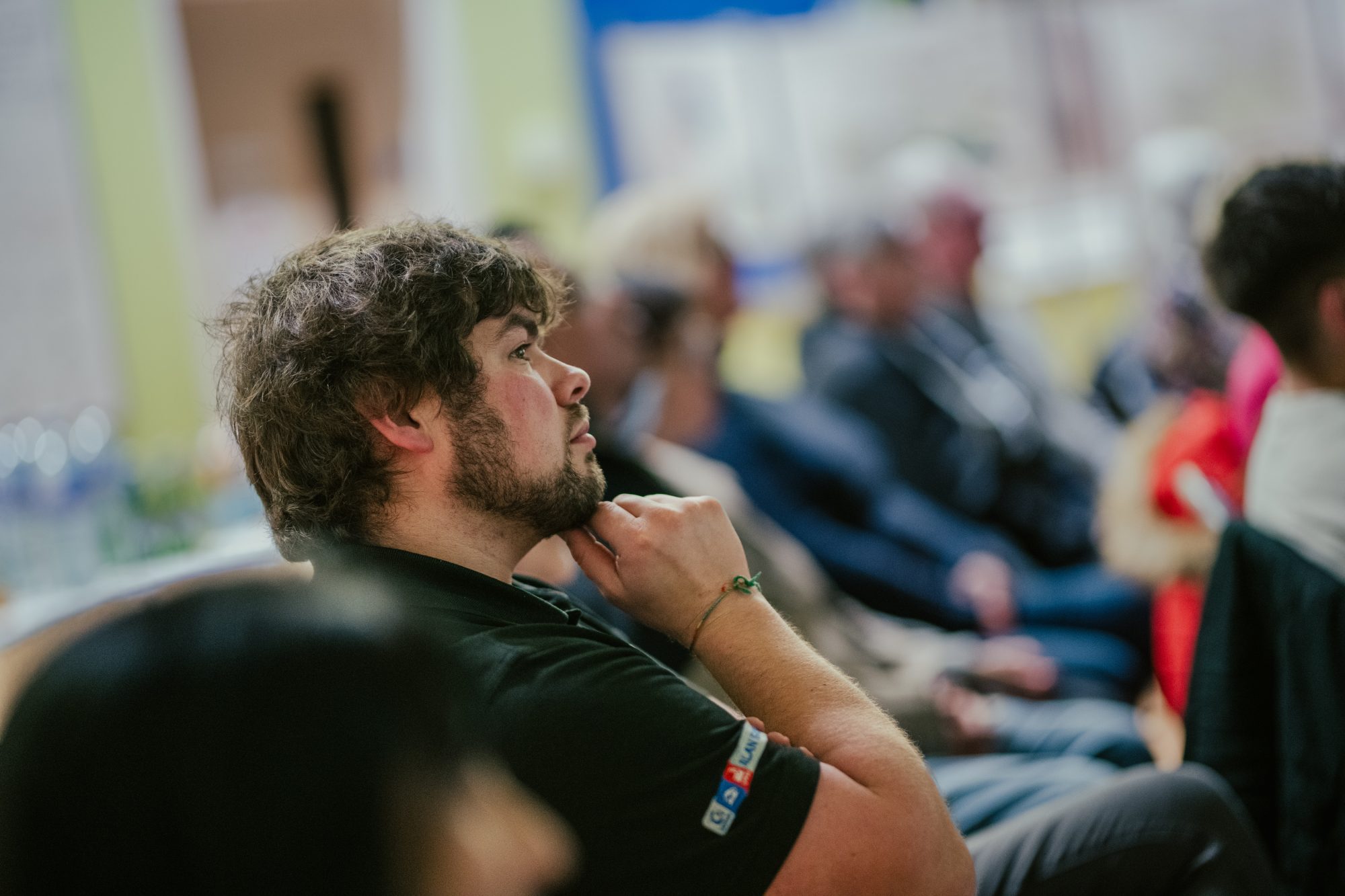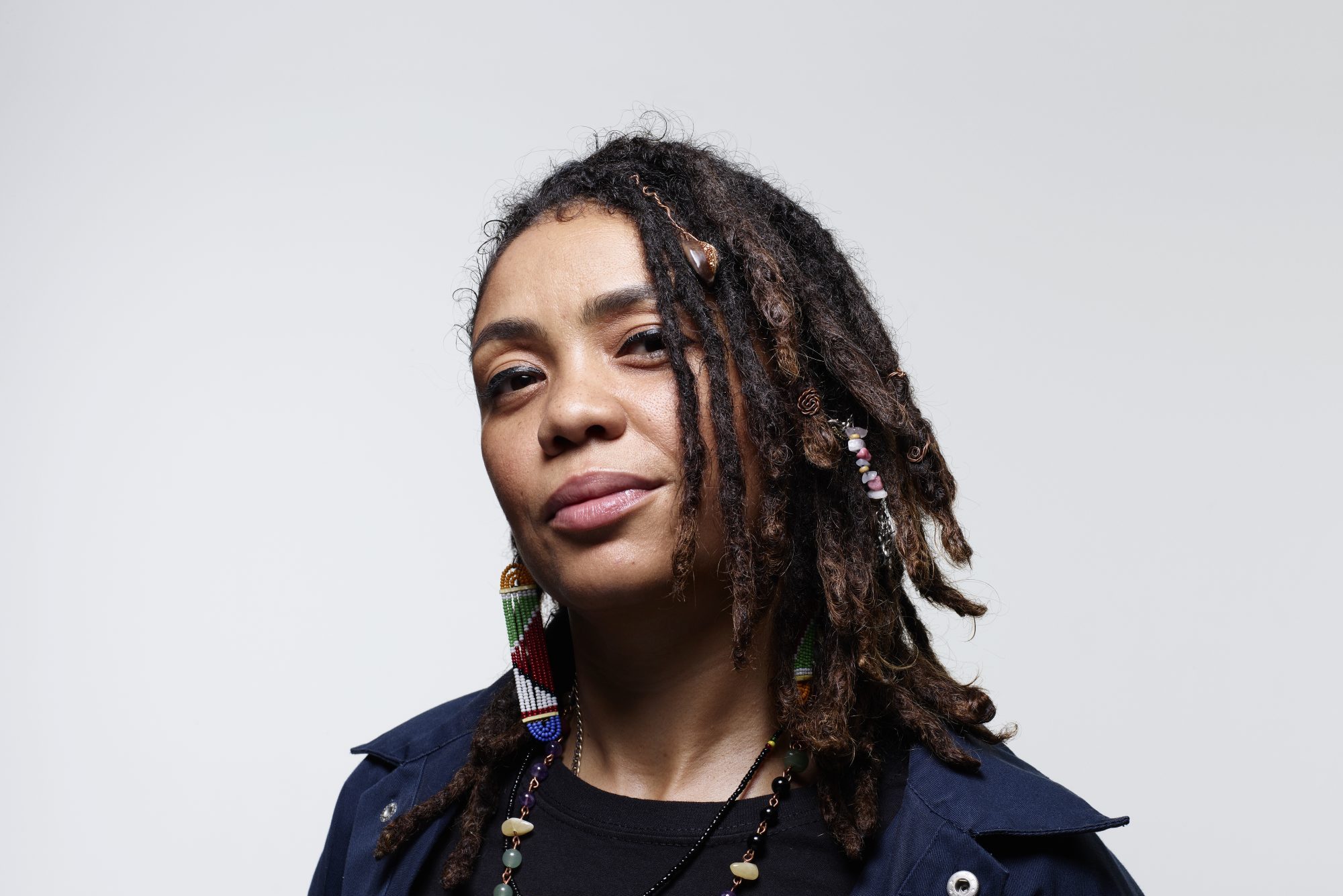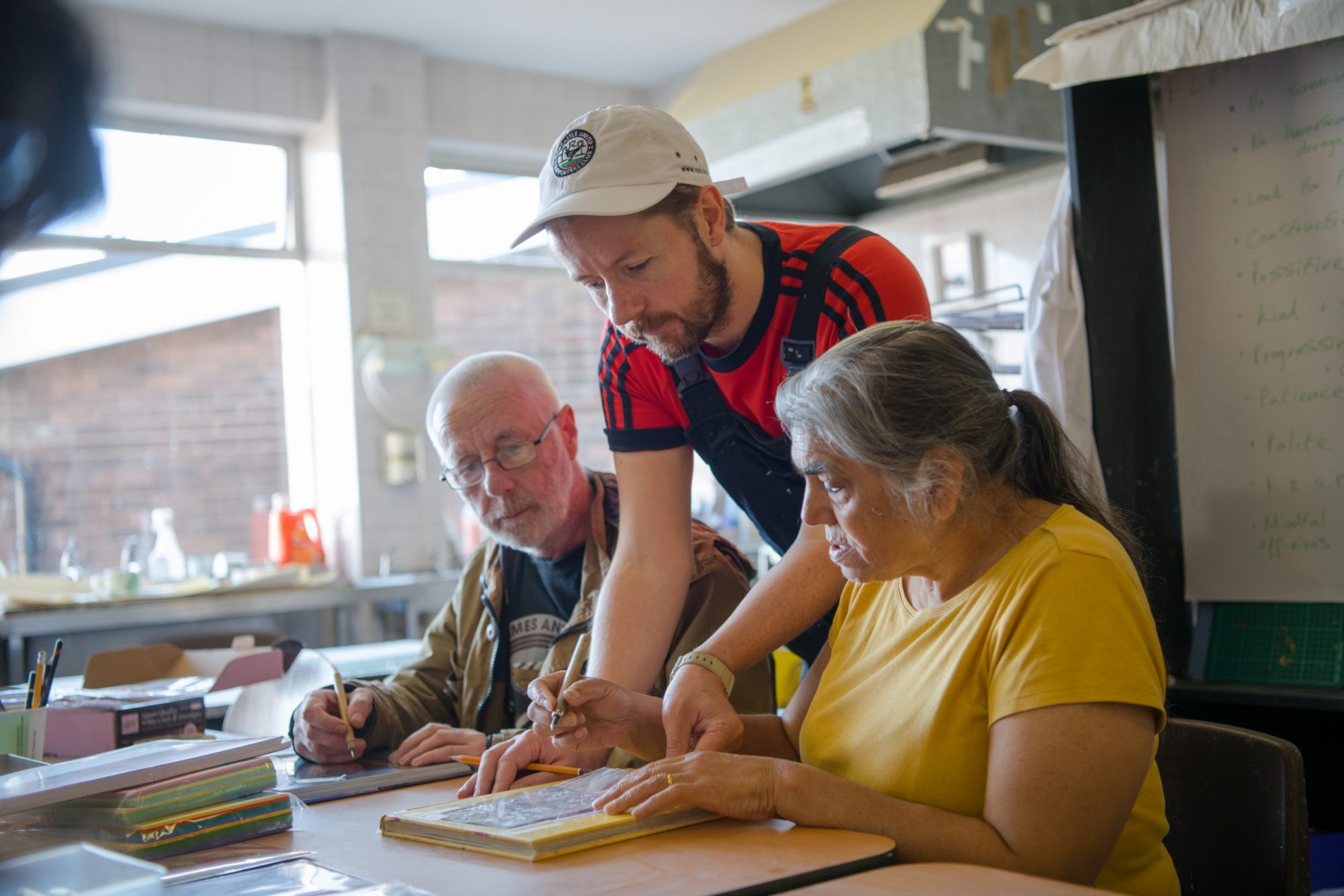The story of FC United is the stuff of recent legend. Set up in 2005 in opposition to the Glazer takeover of Manchester United, this now 2,500 strong member-owned club in the Northern Premier League, had a vision of football as a community asset, not to generate big profits for owners and investment banks.
Director Sam Mullock explains: “All the decisions we make as a football club are in the interests of our supporters and members. Everything we do, from the match day experience to investment into the ground, is done for them, rather than maximising profit. At FC United, a commercial tail does not wag the football club dog.”
In 2013, with support from Manchester City Council, Sport England and the Football Foundation, they started building their home ground in North Manchester. The ground complete, they saw there were other areas to develop. In particular, the space under the east stand.
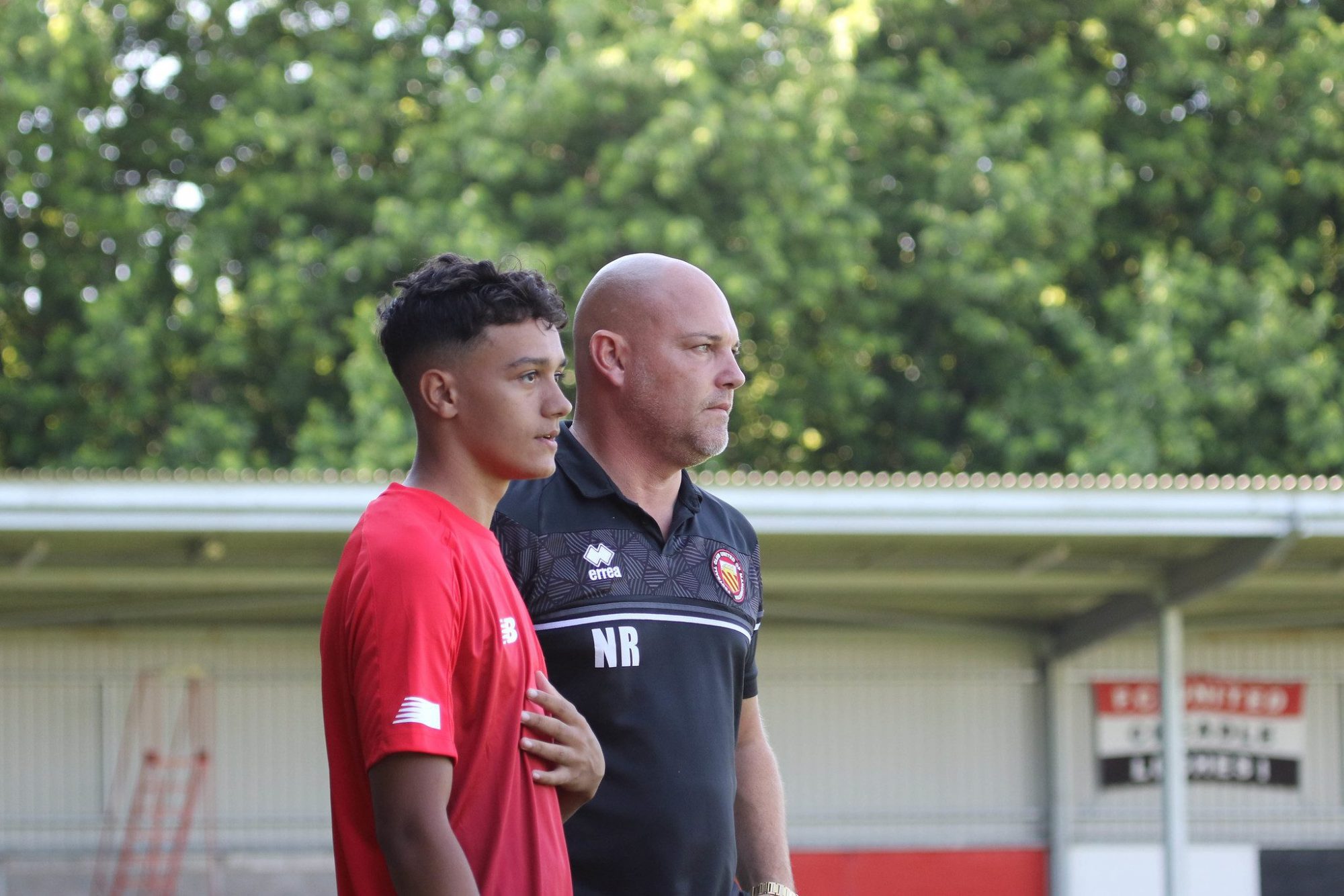
“Our commitment to affordable football is clear; we keep gate prices low, and we don’t wear sponsors names on our shirts or sell all available space for advertising. But that does mean our revenue is not maximised.
With a grant from Power to Change we’ve transformed the area under the east stand into a space that, on match day, hosts live acts organised by volunteers. This increases club revenues which in turn allows us as a not-for-profit to reinvest back into our business; back into the community.”
And as a football ground is only used about 25 times a year for first team games, there are 300 plus days a year when that space is available to the local community. Here, local groups, fitness classes, church groups and Sporting Memories – a dedicated club for older sports fans to gather, socialise and maybe help with dementia spring into life. But then Covid hit, the ground lay silent, two football seasons were made null and void.
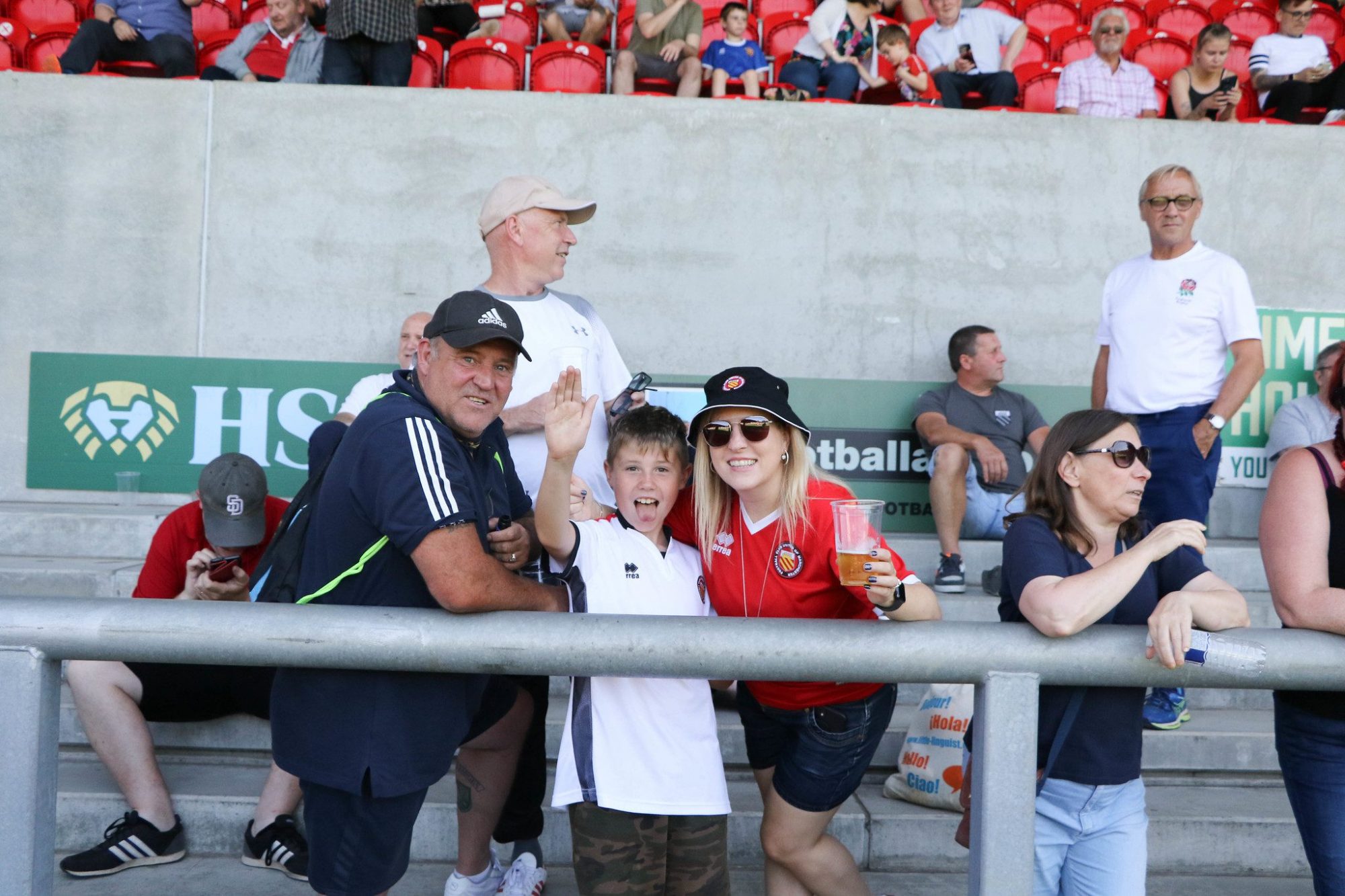
“During the first lockdown, our major source of revenue, match day, disappeared and our income from functions and events in that space completely went as well. We were suddenly faced with a situation where we had no money coming in but costs to cover like staffing; maintenance; general running costs as well as some borrowing to service. Power to Change gave us a grant to cover the shortfall. That was hugely helpful and absolutely crucial in allowing us to keep going while, essentially, we had no income.”
The club turned the space into a food hub where, run by volunteers, they delivered donations of food to vulnerable people who were locked down in the local community. It was still running 18 months later.
“It’s hard work but the rewards are worthwhile. Our members’ primary reason for setting up the club was to show that an alternative fan-focused ownership model could be successful. They came having supported Manchester United. I think people have been taken by surprise by the additional rewards of having a club that’s genuinely community focused and part of its community. I don’t think any of us anticipated how rewarding that would be.”
